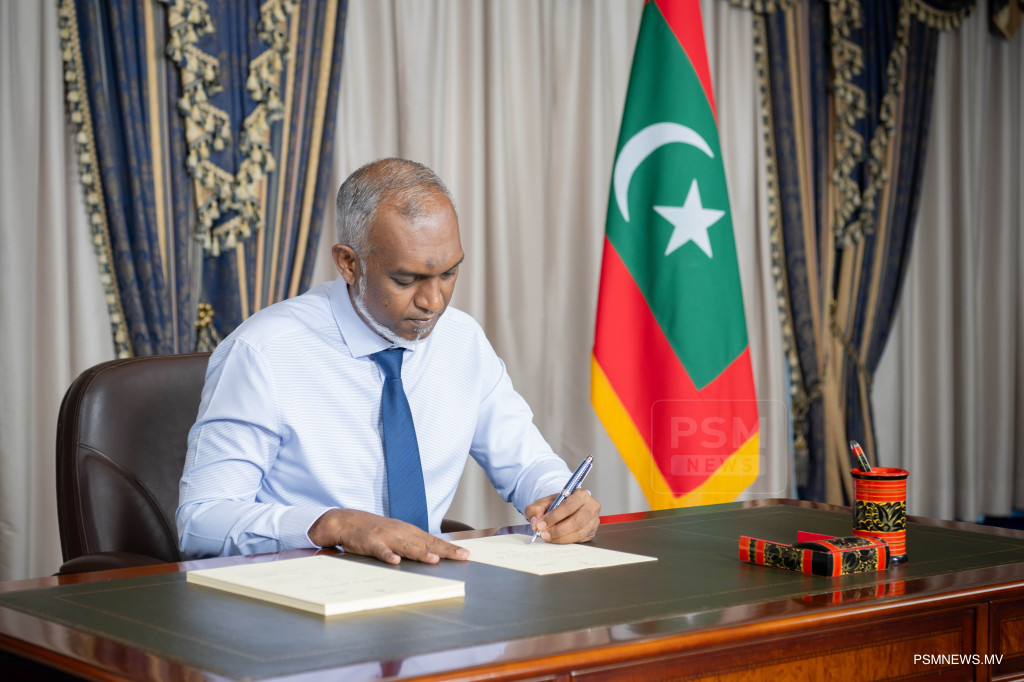
President Dr Mohamed Muizzu has ratified the Public Referendum Bill, formally codifying a legal framework for the conduct of national referendums on matters of public interest and constitutional amendment. The legislation, which came into force upon its publication in the Government Gazette, vests authority in both the executive and legislative branches to initiate referendums under delineated conditions.
Adopted during an extraordinary sitting of Parliament held outside its regular calendar on 15 September, the law sets out the principles, procedural requirements, and institutional responsibilities governing the administration of referendums.
The statute delineates the prerogative to call a referendum according to the nature of the issue. Parliament may resolve to hold a public vote to gauge national sentiment on matters of broad societal impact. The President, by contrast, is empowered to initiate a referendum on issues deemed critical to the national interest.
Integral to the legislation is a provision that renders referendums mandatory in the process of amending designated sections of the Constitution. When Parliament passes an amendment to specific articles of the Constitution, the President is required to call a referendum prior to its formal incorporation into the constitutional text.
To address potential legislative impasses, the law introduces a mechanism for resolving disagreements between the executive and Parliament. If the President declines to ratify a constitutional amendment approved by Parliament, the bill may be submitted to a public vote to determine whether it commands popular support.
The procedural architecture for conducting referendums is codified in the legislation, which assigns responsibilities to both the initiating authority and the Elections Commission of Maldives, the body mandated to administer the vote. A binding timeline is stipulated: referendums must be held within three months of a resolution being submitted to the Elections Commission.
The legislation clearly defines its financial provisions, stipulating that all expenditures associated with the conduct of referendums shall be financed from the State’s Consolidated Revenue Fund, in accordance with the Public Finance Act.
